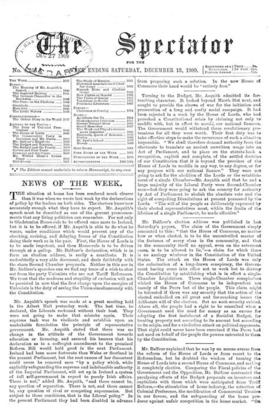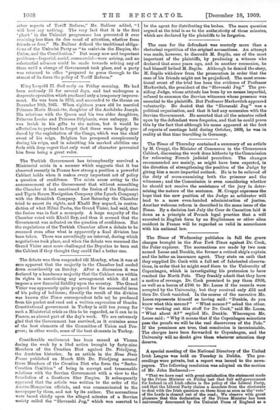Mr. Balfour explained that he was by no means averse
from the reform of the House of Lords or from resort to the Referendum, but he doubted the wisdom of turning the House of Lords into a second House of Commons, and nulling it completely elective. Comparing the Fiscal policies of the Government and the Opposition, Mr. Balfour contrasted the paralysing efforts of the Budget proposals on investors and capitalists with those which were anticipated from Tariff Reform,—the stimulation of home industry, the retention of Colonial Preference, the modification of Commercial Treaties in our favour, and the safeguarding of the home pro- ducer against unfair competition in the home market. "On
other aspects of Tariff Reform," Mr. Balfour added, "I will here say nothing. The very fact that it is the first ' plank ' in the Unionist programme has prevented it ever receiving less than its due need of attention, whether from friends or foes." Mr. Balfour defined the traditional obliga- tions of the Unionist Party as "to maintain the Empire, the Union, and the Constitution." But many new and important problems—Imperial, social, commercial—were arising, and no substantial advance could be made towards solving any.of them until a change of Government took place, and a party was returned to office "prepared to press through to the utmost of its force the policy of Tariff Reform."



















































 Previous page
Previous page